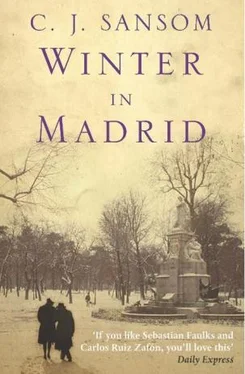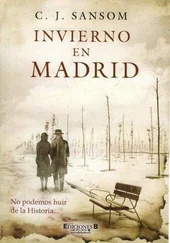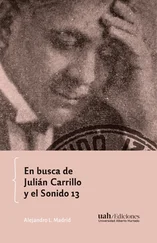One day Barbara and Monique had spent an afternoon at the Interior Ministry, trying again to get the children exchanged. Each time they saw a different official, and today’s man was even less helpful than the others. He wore the black leather jacket that marked him out as a Communist. It looked odd on him; he was plump and middle-aged and looked like a bank clerk. He smoked cigarettes constantly without offering them any.
‘There is no heating at the convent, Comrade,’ Barbara said. ‘With the cold weather coming the children will become ill.’
The man grunted. He reached forward and took a tattered file from a pile on his desk. He read it, puffing at his cigarette, then looked at the women.
‘These are children of rich Catholic families. If they go back they will be asked about military dispositions here.’
‘They’ve hardly been out of the building. They’re afraid to.’ Barbara was surprised how easily her Spanish came now when she was roused. The official smiled grimly.
‘Yes, because they are frightened of us Reds. I am not happy with sending them back. Security is everything.’ He put the file back on the pile. ‘Everything.’
As they left the ministry, Monique shook her head in despair. ‘Security. Always the excuse for the worst things.’
‘We’ll have to try another tack. Perhaps if Geneva could get on to the minister?’
‘I doubt it.’
Barbara sighed. ‘We have to try. I’ll have to organize some more supplies for them. Oh God, I’m tired. Do you want to come for a drink?’
‘No, I have some washing to do. I’ll see you tomorrow.’
Barbara watched Monique walk away. A tide of loneliness washed over her. She was conscious of how separate she was from the closeness, the solidarity of the city’s inhabitants. She decided to go to a bar off the Puerta del Sol where English people sometimes gathered, Red Cross staff and journalists and diplomats.
The bar was almost empty, no one there that she knew. She ordered a glass of wine and went to sit at a corner table. She didn’t like sitting in bars on her own but perhaps someone she knew would come in.
After a while she heard a man’s voice speaking English, with the long lazy vowels of a public-school education. She looked up; she could see his face in the mirror behind the bar. She thought he was the most attractive man she had ever seen.
She watched him covertly. The stranger was standing alone at the bar, talking to the barman in halting Spanish. He wore a cheap shirt and a boiler suit; one arm was in a white sling. He was in his twenties and had broad shoulders and dark blond hair. His face was long and oval, with large eyes and a full, strong mouth. He seemed ill at ease standing there alone. His eyes met Barbara’s in the mirror and she looked away, then jumped as the white-aproned waiter appeared at her elbow, asking if she wanted another vino . He was carrying the bottle and her elbow jogged his, making him drop it. It landed on the table with a crash, wine pumping out over the waiter’s trousers.
‘Oh, I’m so sorry. That was me, I’m sorry.’
The man looked annoyed; it might be the only pair of trousers he had. He began dabbing at them.
‘I’m so sorry. Listen, I’ll pay for them to be cleaned, I—’ Barbara stumbled over her words, forgetting her Spanish. Then she heard that drawling voice at her elbow.
‘Excuse me, are you English? May I help?’
‘Oh no – no, it’s all right.’
The waiter recovered himself. She offered to pay for the spilt bottle as well as his trousers and he went off, mollified, to fetch another glass. Barbara smiled nervously at the Englishman.
‘How stupid of me. I’ve always been so clumsy.’
‘These things happen.’ He held out a hand. He had brown slender fingers, the wrist covered in a fair down that caught the light and shone like gold. She saw his other arm was encased in plaster from above the elbow to the wrist. His large eyes were dark olive, like a Spaniard’s. ‘Bernie Piper,’ he said, studying her curiously. ‘You’re a long way from home.’
‘Barbara Clare. Yes, afraid so. I’m here with the Red Cross.’
‘Mind if I join you? Only I haven’t spoken English to anyone for weeks.’
‘Well, I – no, please do.’
And so it began.
SOMEONE FROM the Madrid office of the Daily Express had telephoned Barbara three days previously and told her there was a man who might be able to help her. His name was Luis and he could meet her in a bar in the old town on Monday afternoon. She had asked to speak to Markby but he was away. As Barbara put the phone down she wondered if it was tapped; Sandy said it wasn’t but she had heard they tapped all the foreigners’ telephones.
After breakfast she went back to her room. Her mirrored bureau was an eighteenth-century antique she and Sandy had picked up in the Rastro market in the spring. It had probably been looted from some wealthy house in Madrid at the start of the Civil War. You saw families there on Sundays, hunting for their stolen heirlooms. They went cheap, it was food and petrol that were valuable now.
The bureau had come with a key and Barbara used it to store personal, precious things. Bernie’s photograph was in there. It had been taken just before he went to the front, in a photographer’s studio with chaises longues and potted palms. He stood in his uniform, arms folded, smiling at the camera.
He had been so beautiful. It was a word people used about women but Bernie had been the beautiful one. She hadn’t looked at the photograph for a long time; seeing it still hurt her, she mourned Bernie as deeply as ever. Guiltily, because Sandy had rescued her and set her on her feet, but what she had with Bernie had been different. She sighed. She mustn’t hope too much, she mustn’t.
It still amazed her that Bernie had been interested in her, she must have looked a fright in that bar, her hair all frizzy and wearing that tatty old jumper. She took off her glasses. She told herself that without them, yes, she could be called quite attractive. She put the glasses on again. As so often, even amid her preoccupation with Bernie, just thinking she was attractive triggered a memory, one of the bad ones. Usually she tried to push them away but she let this one come, even though it left her feeling she was standing on the edge of a precipice. Millie Howard and her gang of eleven-year-olds, forming a circle round her in the quadrangle of the grammar school, chanting. ‘Speccy frizzy-hair, speccy frizzy-hair.’ If she hadn’t had the glasses to mark her out as different, if she hadn’t responded with blushing and tears, would it ever have happened, the tormenting that had gone on for so long? She closed her eyes. Now she saw her older sister, radiant Carol who had inherited their mother’s blonde hair and heart-shaped face, walking through the lounge of the little house in Erdington, off to meet another boy. She swirled past, leaving a rich smell of perfume. ‘Doesn’t she look lovely?’ her mother had asked her father, while Barbara’s heart burned with jealousy and sadness. A little while before she had broken down and told her mother how the girls taunted her at school. ‘Looks aren’t everything, darling,’ her mother had said. ‘You’re much cleverer than Carol.’
She lit a cigarette with a shaking hand. Mum and Dad, Carol and her good-looking accountant husband were under the air-raids now. The Blitz had moved beyond London; in the week-old, censored edition of the Daily Mail she bought at the station, she had read of the first raids on Birmingham. And here she was, sitting in a fine house, still picking at those old wounds while her family were running for the air-raid shelters. It was so petty, she felt ashamed. Sometimes she wondered if there was something wrong with her mind, whether she was a little crazy. She got up and put on her jacket and hat. She would kill some time in the Prado. Then she would see what this man knew. The thought gave her a welcome sense of purpose.
Читать дальше












